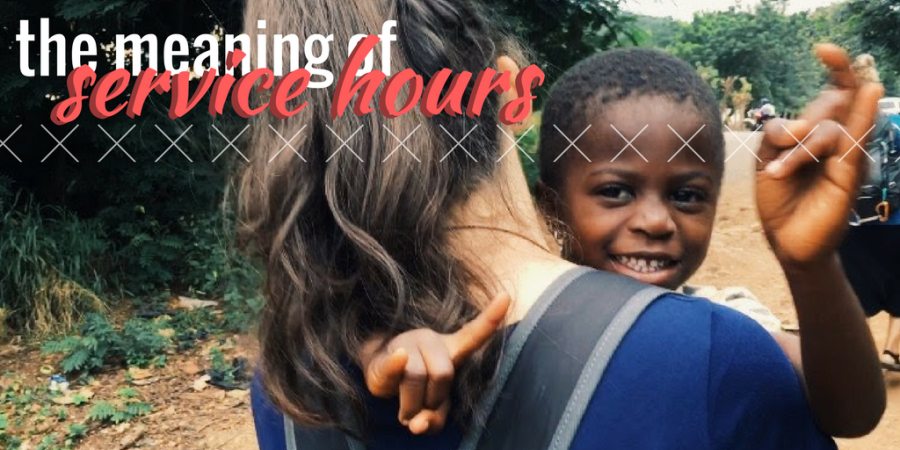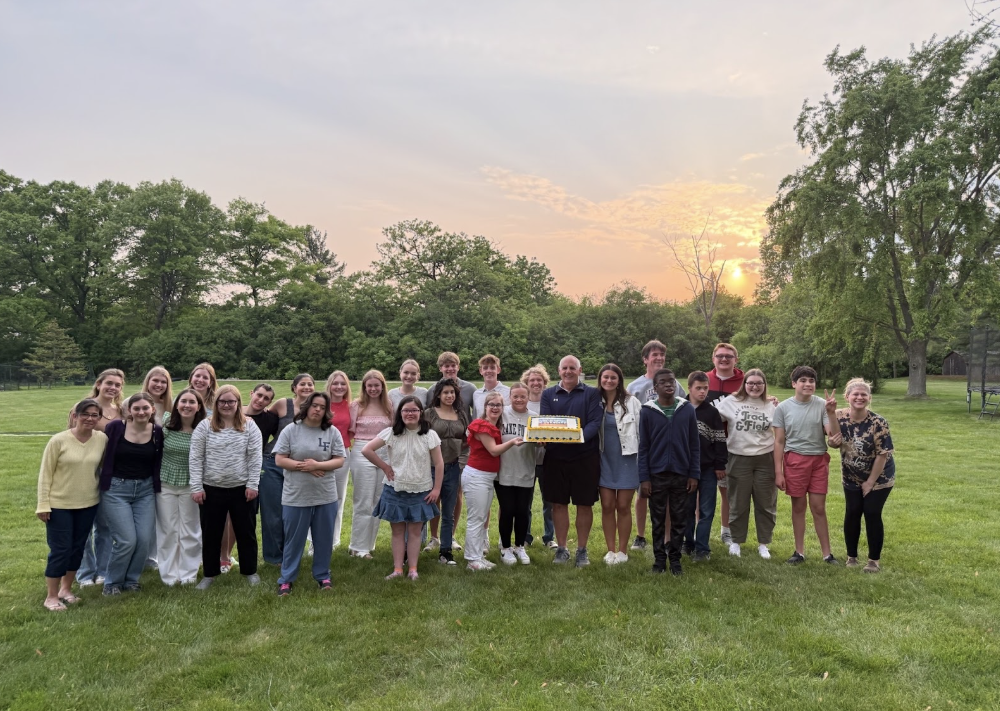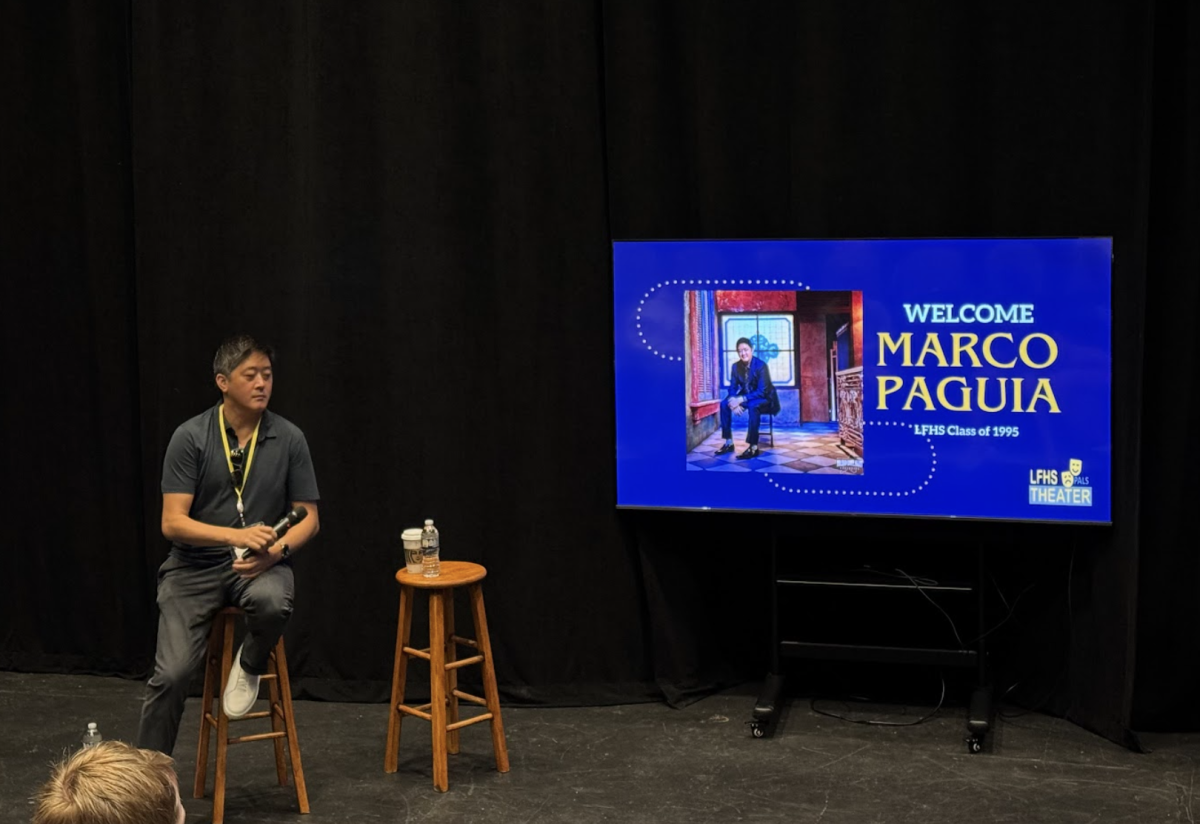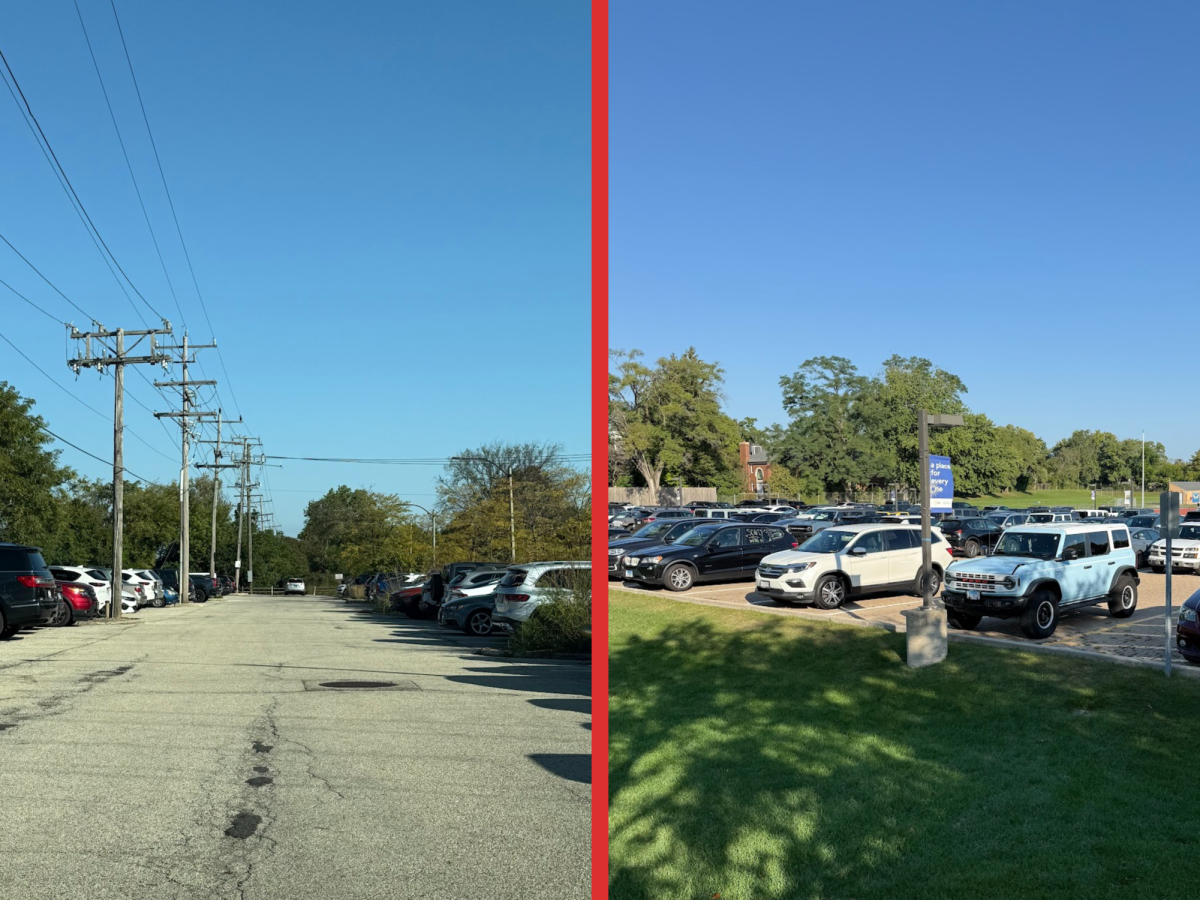
The toe of a grey tennis shoe edged with hot pink poked out beneath the hem of her long black skirt. The sound of shovels repeatedly digging into the gritty cement was the only sound in the early hours of Krobo, Accra, located in southeastern Ghana. Overhead, the mid-morning sun tracked their progress, marking the hour by its position in the sky. The long black skirt may have seemed an odd choice for brickmaking, but respect for the cultural norms of Krobo had dictated her outfit of the day. A quick breakfast following her 7 am wakeup call fueled the day’s work. LFHS senior Maeve Lewis, along with 15 other volunteers, labored well into the soupy morning slopping concrete (which they’d mixed themselves with only their shovels from a combination of sand, cement, and water) into brick molds, only stopping when all of the concrete was used up. They couldn’t very well leave a pile of it to dry in the hot August sun.
The bricks they made would one day form a part of the school where they were now going to teach. As soon as the last of the cement was patted into the brick molds, the volunteers made their way over to the local school, where they would spend the next few hours teaching elementary students English and math. This was followed by a quick lunch, time spent immersed in the culture of Ghana, and then the day was capped off with more time with the kids. For two weeks, this was the volunteers’ schedule–leaving barely enough time for a deep breath. A never-ending laundry list of things to accomplish ran through their heads at all times, and the well being of those they served was at the very top of that list.

One thing is for sure, however. In the thick of this exhausting schedule, the last thing on these volunteers’ minds was service hours. For the average high school student, volunteering and service hours are more or less the same thing. The differences between the two are subtle for sure, but whether or not one considers them to be the same thing can speak volumes about their character. Hours are a way to quantify community service for graduation requirements or college applications. Volunteering, however, pertains to giving freely of your time and energy without any expectation of something in return. In our community especially, service can turn into yet another commodity to list on a resume, a prerequisite to get out of the way. With the hyper-scheduled student body, this makes sense; it’s logical to want to do maximize your time by weighing the benefits of any action with the time it costs you.
Clearly, this isn’t the case for everyone. Maeve didn’t give up two weeks of her summer just to beef up her college application.
In her words, “Life should not be viewed as a resume that you need to update constantly. Just because people say you should do service doesn’t mean you should do it to check off some box. You should be doing it to better the world that you live in.”













